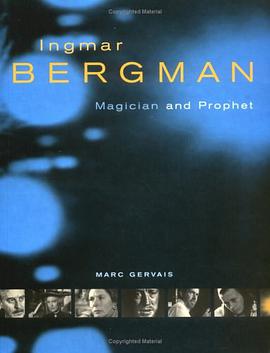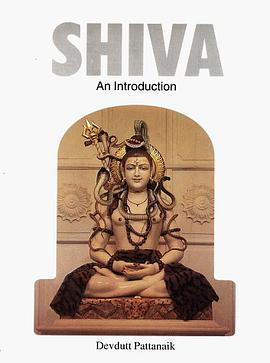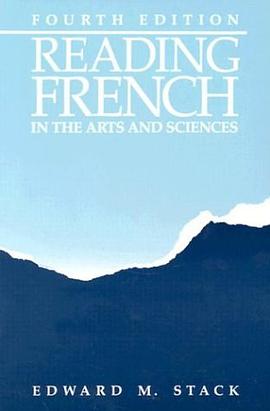

具体描述
Ingmar Bergman has long been revered as a master craftsman of the cinema, a film poet who has created works that are intensely revealing of himself while resonating mysteriously and powerfully with his audience. In "Ingmar Bergman", Marc Gervais explores what has largely been taken for granted - how Bergman achieves this cinematic magic through his specific choices in the use of film language and the texturing and structuring of his images, sounds, and rhythms. Gervais shows also how Bergman's work resonates in a much broader sphere than the personal. His films, which are without equal in the history of cinema in quality, consistency, and relevance, are crucial moments in an ongoing conversation with western culture in its frenetic evolution since World War II. Gervais situates Bergman within the tensions of modernism and the western tradition that have manifested themselves in the twentieth century from existentialism, through deconstruction, and into postmodernism. Bergman's films are experienced as incarnations, meditations, explorations, and aesthetic objects that reflect, comment on, conflict with, or embrace the movements that produced them. Marc Gervais is professor of film and culture in the Department of Communication Studies at Concordia University. Long involved professionally in various aspects of the media, he is the author of the first book on Pier-Paolo Pasolini.
作者简介
目录信息
读后感
评分
评分
评分
评分
用户评价
这本书的阅读体验是极具思辨性的,它不是那种提供标准答案的指南,而是抛出更多深刻的问题,引导读者进行二次思考。作者在探讨伯格曼如何从一个电影制作人蜕变为一个哲学家时,引用了大量存在主义和现象学的观点,使得全书的讨论层次得到了极大的提升。我注意到,作者对伯格曼后期作品中那种逐渐消退的戏剧冲突和趋向宁静的风格转变,给予了非常富有洞察力的解读,认为那是一种精神上的和解,而非创作上的衰退。这种观点很有启发性,它挑战了许多既有的评论标准。全书的语言风格极其沉稳内敛,几乎没有浮夸的赞美之词,所有的褒奖都内嵌在严谨的论证和细致的文本分析之中。对于想要研究电影美学与宗教哲学交叉领域的读者来说,这本书简直是一部里程碑式的著作,它成功地将一位电影艺术家的生平,提升到了一个探讨人类终极困境的哲学高度,读完之后,需要很长时间才能从那种深沉的思辨中抽离出来。
评分这本书的叙事节奏感极强,不像许多艺术家传记那样平铺直叙,更像是一部精心剪辑的电影长片。作者巧妙地运用了闪回和蒙太奇的手法,将伯格曼不同创作阶段的侧重点穿插叙述,让你在阅读过程中始终保持一种探寻的兴奋感。我最喜欢的是关于他在剧场导演生涯的描述,那段文字充满了舞台上的火药味和权威性,展现了他如何像一个独裁者一样,雕琢出最完美的表演,同时又如何因为追求完美而与演员之间产生难以调和的矛盾。那种对“真实”毫不妥协的追求,贯穿了他艺术生涯的始终,也折射出他复杂的人格底色。书中对几部重要作品的幕后故事挖掘得非常深入,比如《假面》是如何在一片荒芜中诞生的,那些充满象征意义的画面背后蕴含的哲学思辨,都被还原得清晰可见。阅读体验非常流畅,即便是一些涉及复杂的心理分析的部分,也被作者用极富画面感的语言巧妙地消化了,使得读者在享受阅读乐趣的同时,也能深入理解这位大师创作的内在驱动力,让人忍不住一气呵成,生怕错过任何一个细微的转折。
评分如果说有很多关于电影大师的书籍都在试图“解释”他们的作品,那么这本书更像是在“重现”伯格曼的创作心境。我深切地感受到作者对瑞典文化背景的扎实把握,许多关于北欧的孤独感、路德宗的阴影如何渗透进他的镜头语言中,都被阐释得入木三分。这本书的结构设计非常巧妙,它没有完全按照时间顺序,而是围绕几个核心的“主题模块”展开——比如“父与子”、“上帝的沉默”、“视觉的仪式”等,然后在每个模块中穿插不同时期的作品案例,形成一种螺旋上升的深入感。这种处理方式极大地避免了阅读疲劳,每一次翻页都像是在探索伯格曼内心地图上的一个新区域。我尤其欣赏作者在分析他对摄影师的领导方式时所使用的类比,那简直就是对一个视觉魔法师工作哲学的精准描摹。读完此书,我不再是单纯地欣赏他的电影画面,而是开始理解那些画面是如何从他的焦虑和渴望中“生长”出来的,这是一种完全不同的、更具穿透力的理解。
评分这部电影巨匠的传记,读来仿佛是走进了一座幽深而迷宫般的艺术殿堂,每一页都散发着冰冷而又灼热的光芒。作者似乎对伯格曼的内心世界有着近乎病态的洞察力,将他那些标志性的、关于信仰缺失、死亡阴影和人际间不可逾越的鸿沟的母题,抽丝剥茧般地呈现在我们面前。我尤其欣赏书中对早期作品分析的精妙之处,那种对光影的痴迷、对人脸特写近乎残忍的凝视,都被还原得淋漓尽致。它不仅仅是梳理了他从瑞典国家剧院到法罗岛的创作轨迹,更像是解剖了一个天才的灵魂构造。读完之后,我仿佛也被卷入了《第七封印》中对永恒的追问,以及《野草莓》里对记忆和失落的无尽回溯之中。这本书的笔触非常细腻,大量引用了伯格曼本人的书信和日记片段,使得历史的厚重感和个人情感的脆弱性达到了完美的平衡。它要求读者有一定的艺术素养,否则可能会觉得某些段落过于晦涩,但对于真正热爱电影艺术的人来说,这无疑是一份丰厚的精神食粮,让人在赞叹其伟大的同时,也不禁为他一生承受的巨大精神压力而感到一丝心悸。
评分我必须承认,这是一本非常“冰冷”的解读,它没有试图将英格玛塑造成一个平易近人的偶像,而是毫不留情地揭示了他作为一个人所拥有的所有缺陷、傲慢和情感上的疏离。书中对伯格曼的私生活,特别是与多位女性的关系处理得极为坦诚,没有丝毫的回避或美化。作者的视角是高度客观的,他似乎在用一种近乎科学家的冷静,来剖析这位天才是如何通过艺术来处理他无法解决的私人困境。这种直面人性阴暗面的勇气,使得这本书的价值超越了普通的“名人轶事录”。它更像是一部关于“创造力代价”的深度报告。特别是在探讨他晚年对死亡的接受和对家庭责任的回避时,文字的力度达到了顶峰,让人不禁思考,伟大的艺术创作是否必然要以某种程度的人性缺失为代价。这本书的学术性与文学性的结合达到了一个很高的水准,引用了大量的批评理论,但表达方式却非常朴素有力,读起来有一种直击灵魂的震撼感。
评分 评分 评分 评分 评分相关图书
本站所有内容均为互联网搜索引擎提供的公开搜索信息,本站不存储任何数据与内容,任何内容与数据均与本站无关,如有需要请联系相关搜索引擎包括但不限于百度,google,bing,sogou 等
© 2026 book.wenda123.org All Rights Reserved. 图书目录大全 版权所有




















